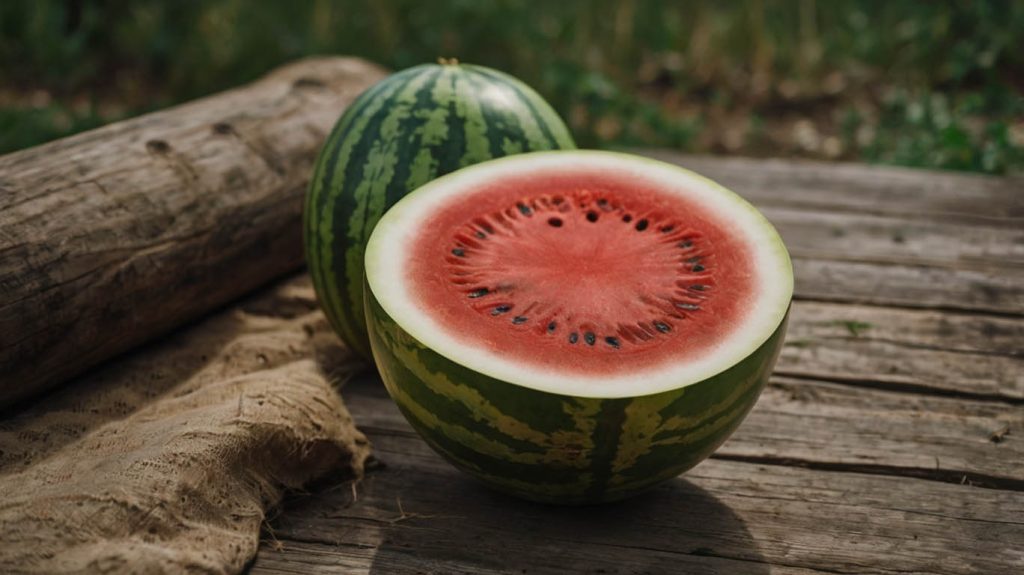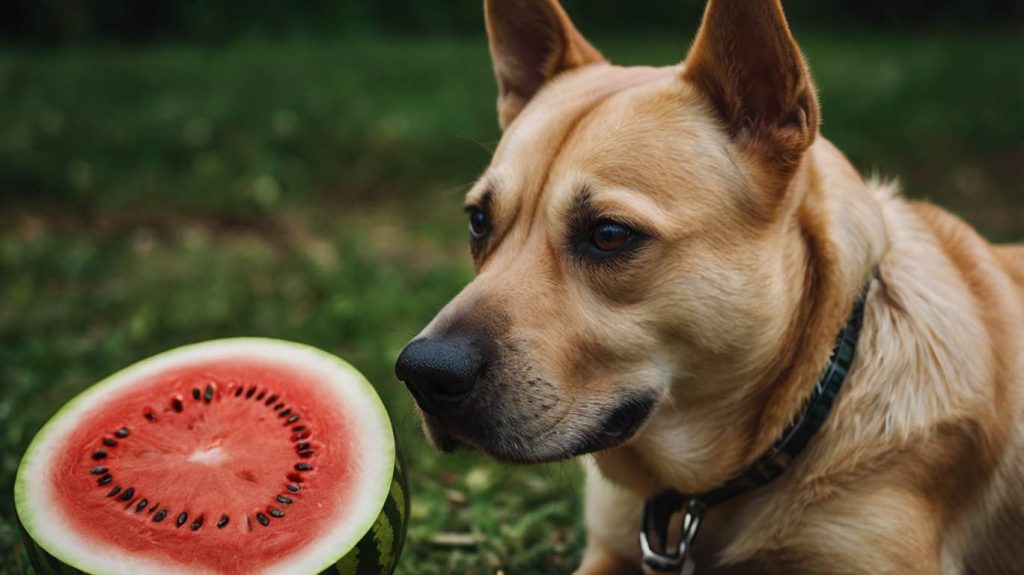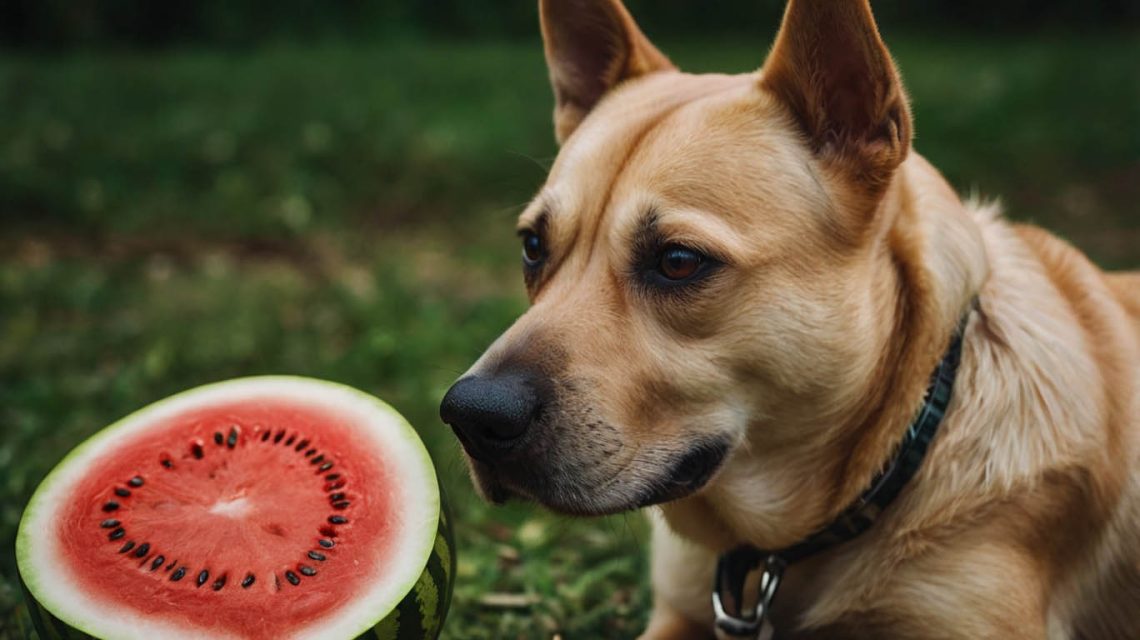Are Watermelon Seeds Bad for Dogs? The Definitive Answer
You’ve just prepared a delicious, hydrating snack of watermelon on a hot day. As you offer a small, juicy cube to your eager dog, you pause. You diligently removed the green rind, but what about those little black seeds? A crucial question flashes through your mind: Are watermelon seeds bad for dogs? It’s a common point of confusion for even the most careful pet owners. While the fleshy fruit is a wonderful treat, the seeds tell a very different and potentially dangerous story.
This comprehensive guide will walk you through the entire narrative of watermelon seeds and your dog’s health. We will start by directly answering the core question and explaining the primary risk they pose. Subsequently, we will explore the different types of seeds and what to do if your dog accidentally ingests them. Furthermore, we will provide you with the definitive method for preparing watermelon safely. Consequently, you will leave with a clear understanding of why avoiding these seeds is a non-negotiable part of sharing this summer favorite.
The Core Question: Are Watermelon Seeds Bad for Dogs?
Let’s get straight to the point: Yes, watermelon seeds are bad for dogs. While a single, accidentally swallowed seed is unlikely to cause harm in a large dog, they should never be given intentionally, and consuming a significant number can lead to a serious medical emergency.
It’s important to clarify why they are bad. Unlike the seeds of some other fruits (like apples or cherries), the primary danger of watermelon seeds is not toxicity. They do not contain cyanide in any meaningful amount. Instead, the danger is entirely physical. Their hard, indigestible nature is the root of the problem, a fact every pet owner needs to understand before they ask if are watermelon seeds bad for dogs.

Why Exactly Are Watermelon Seeds Bad for Dogs? The Primary Risk
The storyline of danger begins in your dog’s digestive tract. When a dog swallows watermelon seeds, they do not break down. Instead, they travel through the system whole, which is where the potential for disaster arises.
The Serious Threat of Intestinal Blockage
The most significant reason watermelon seeds are bad for dogs is the risk of an intestinal blockage, also known as a gastrointestinal obstruction. Imagine your dog’s intestines as a complex series of pipes. The hard watermelon seeds can accumulate and clump together, creating a “dam” that prevents food, water, and gas from passing through normally.
This condition is incredibly painful and, if left untreated, can be fatal. The blockage can cut off blood supply to parts of the intestine, causing tissue to die. This is a life-threatening emergency that almost always requires major surgery to resolve.
Why Dog Size Matters
The risk of a blockage is not the same for all dogs.
- Small Dogs: Breeds like Chihuahuas, Yorkies, and Dachshunds are at a much higher risk. Their intestinal tracts are narrower, making it far easier for a small number of seeds to cause a complete obstruction.
- Large Dogs: A Golden Retriever or German Shepherd might pass a few seeds without any issue. However, if they eat a large quantity (for example, by getting into a discarded watermelon rind), they are still at risk.
Understanding the Different Types of Watermelon Seeds
Not all watermelon seeds look the same, which leads to further questions about their safety.
Are the Black Watermelon Seeds Bad for Dogs?
Yes. The hard, mature, black seeds are the primary culprits. These are the seeds with the highest potential to cause an intestinal blockage. When you ask if are watermelon seeds bad for dogs, these are the ones to be most concerned about.
What About the White Seeds in Seedless Watermelons?
Seedless watermelons still contain small, soft, white seed casings. These are immature seeds that haven’t fully developed. They are significantly softer and more pliable than black seeds, making them much less likely to cause a blockage. While they are far safer, it is still best practice to limit their intake. The pure, seedless flesh is always the safest part of the fruit to offer.

What to Do if Your Dog Eats Watermelon Seeds
Accidents happen. Maybe your dog snatched a piece of discarded rind, or a child shared a seedy piece of fruit. Don’t panic, but do act prudently.
- Assess the Situation: How many seeds did they eat, and how big is your dog? If a large dog ate one or two seeds, the risk is very low. If a small dog ate a handful, the risk is much higher.
- Monitor Your Dog Closely: For the next 24-48 hours, watch for any signs of gastrointestinal distress.
- Know the Symptoms of a Blockage: Contact your veterinarian immediately if you observe any of the following:
- Vomiting or repeated attempts to vomit
- Lethargy or weakness
- Loss of appetite
- Abdominal pain or bloating (your dog may yelp if you touch their stomach)
- Straining to defecate, or having small amounts of watery diarrhea
- Dehydration
If you suspect a blockage, do not “wait and see.” This is a true medical emergency. Trusted resources like the American Veterinary Medical Association (AVMA) provide guidance on handling pet emergencies.
The Best Practice for Safe Watermelon Snacking
The good news is that preventing this danger is incredibly simple. You don’t have to deny your dog the hydrating, nutritious benefits of watermelon flesh.
- Always Choose Seedless: Make your life easier by purchasing a seedless watermelon.
- Meticulously Deseed: If you have a seeded variety, take the time to remove every single black seed before offering any to your dog.
- Completely Remove the Rind: Remember, the rind is also a major choking and blockage hazard. Cut the pink flesh away from all green and white parts.
- Serve in Moderation: Cut the safe, seedless flesh into bite-sized cubes. For more information on safe treats, explore our guide on [Safe Fruits Your Dog Can Eat].
The Final Verdict: Watermelon Seeds Are a Hazard to Avoid
So, let’s definitively answer our initial question one last time: Are watermelon seeds bad for dogs? Yes, they are. They represent a significant and preventable risk of intestinal blockage. The story is simple: the fruit is a wonderful treat, but the seeds are a hazard. By taking the simple precaution of removing them, you ensure that sharing this iconic summer fruit is a happy and safe experience for everyone.
Have you ever had a scare with your dog eating something they shouldn’t have? Share your story or ask your questions in the comments below. For a complete list of dangerous foods, read our essential article on [What Human Foods Are Toxic to Dogs: A Vet’s List].


